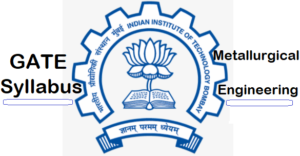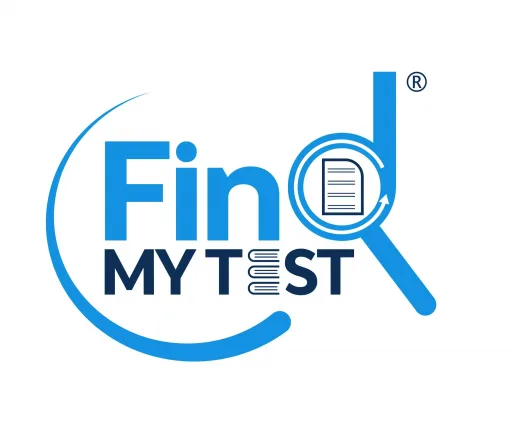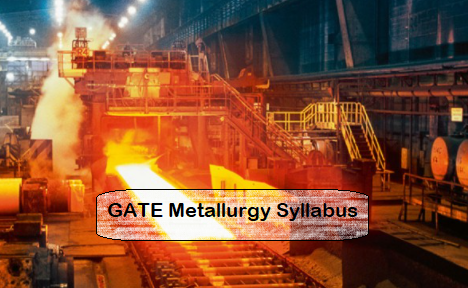GATE is one of the most prestigious examinations for the Indian Engineering students. Getting a good rank in this exam can open up a lot of doors of possibilities for the candidate. This could be one of the reasons why last year more than 8 lakh applicants applied for GATE to appear on the examination.
Table of Content
1. GATE 2021 Metallurgical Engineering Syllabus1.1. Engineering Mathematics
1.2. Transport Phenomena and Rate Processes
1.3. Metallurgical Thermodynamics
1.4. Mechanical Metallurgy
1.5. Manufacturing Processes
1.6. Physical Metallurgy
1.7. Mineral Processing and Extractive Metallurgy
Out of these 8 lakh applicants, those who were interested in study in the metallurgy field after their Bachelor’s or Masters’s degree have selected the Metallurgical Engineering option as the paper that they want to appear on.
GATE Metallurgical Engineering Syllabus
If you are interested in doing the same, the first and foremost thing that you need to know by heart is the complete syllabus for the Metallurgical Engineering paper for the GATE exam. Here we have the complete GATE Metallurgical Engineering Syllabus 2021 and all the topics that you need to know. So, let’s take a look.

The GATE Metallurgy Engineering paper is divided into seven sections and the sections include the following topics:
- Engineering mathematics
- Transport phenomena and rate processes
- Metallurgical Thermodynamics
- Mechanical metallurgy
- Manufacturing Processes
- Physical metallurgy and
- Mineral Processing and Extractive metallurgy
Engineering Mathematics
The mathematics section is compulsory for many of the GATE papers and this section has the goal to measure a candidate’s understanding of the subject mathematics. The section has questions from the topics Linear algebra, numerical methods, calculus, vector calculus, probability & statistics, and differential equations. To elaborate the syllabus even further, the topics under linear algebra are systems of linear equations, Matrices and Determinants and Eigen values and Eigen vectors.
Numerical methods contain the topics solutions of linear and non-linear algebraic equations, single and multi-step methods for differential equations and integration by trapezoidal and Simpson’s rule.
Calculus has the topics limit, partial derivatives, continuity and differentiability, Sequence and series, Maxima and minima, Fourier series, and Test for Convergence. Vector calculus on the other hand contains the topics gradient, Line, Surface and volume integrals, divergence and curl, and Stokes, Gauss, and Green’s theorems.
Probability and Statistics have the topics Conditional probability, mean, median, mode and standard deviation, Poisson normal and bionomical distributions, definitions of probability and sampling theorems, correlation and regression analysis, and random variables.
Lastly he part differentiation equation contains questions n the topics Laplace transformations, one-dimensional heat and wave equations, Linear and non-linear first-order ODEs, Cauchy’s and Euler’s equations, higher-order linear ODEs with constant coefficients, and PDEs Laplace.
Transport Phenomena and Rate Processes
Transport phenomena and rate processes section contains the following topics that you need to study: heat transfer (1-D steady-state conduction, Fourier’s law, and conduction ), Radiation ( Stefan Boltzmann constant, Black body radiation, and Kirchhoff’s law), convection, mass transfer (Mass transfer coefficients and Diffusion and Fick’s laws), momentum transfer (Bernoulli’s equation, flow past plane surfaces and through pipes, mechanical energy balance equation, the concept of viscosity and shell balances), Electrochemical kinetics ( polarization ), dimensional analysis (Significance of dimensionless numbers and Buckingham Pi theorem) and basic laws of chemical kinetics (Arrhenius relation, heterogeneous reactions, first-order reactions, reaction rate constants, and oxidation kinetics).
Metallurgical Thermodynamics
The syllabus for metallurgical thermodynamics includes First and Second law of Thermodynamics, Applications to metallurgical systems, Chemical potential, Maxwell’s relations, Gibbs and Helmholtz free energy, ideal and regular solutions, binary phase diagram and lever rule, Gibbs phase rule, phase equilibria, Equilibrium constant, Activity, Ellingham and phase stability diagrams, free-energy vs. composition diagrams, thermodynamics of point defects, interfaces and surfaces, electrochemistry ( Nernst equations, Single electrode potential, Potential-pH diagrams, and electrochemical cells) and adsorption and segregation phenomena.
Mechanical Metallurgy
The topics under the mechanical metallurgy section are:
- Dislocation theory (source and multiplication of dislocations, Edge, screw and mixed dislocations, dislocation interactions and reactions, stress fields around dislocations and partial dislocations)
- Fatigue (Cyclic stress-strain behavior and crack growth)
- Strengthening mechanism (strengthening due to grain boundaries, precipitation and dispersion, work strain hardening, and solid solution)
- Fracture behavior (fractography, fracture toughness, Griffith theory, linear elastic fracture mechanics, ductile to brittle transition )
- High-temperature deformation and failure
- stress exponent and activation energy
- Strain tensor and stress tensor
- Elasticity
- Representation by Mohr’s circle,
- Yield criteria
- Plastic deformation
Manufacturing Processes
Manufacturing process is another important section for the students of the metallurgical engineering branch. It includes topics like:
- Hot, warm, and cold working of metals
- Metal casting
- Casting defects and repairs
- Metal forming
- Metal joining
- Powder metallurgy.
Physical Metallurgy
This section deals with the physical characteristics of various metal crystals. It deals with the formation and phases of various metal and their alloys. The main topics that are in this section are:
Solid-state transformations, Electronic, magnetic and optical properties of materials, X-ray Diffraction, corrosion, and its prevention, Crystal Imperfections, phase transformation, chemical bonding, solid-state transformations, heat treatment of cast iron, steel, and aluminum alloys, surface hardening treatment, Solidification in isomorphous, eutectic and peritectic systems constitutional supercooling, coring and microsegregation, cast structures and macrosegregation, dendritic solidification, TTT and CCT diagrams and Recovery, recrystallization and grain growth
Mineral Processing and Extractive Metallurgy
The last section contains topics related to the subject of extractive metallurgy. The sub-topics that this section covers are:
- Methods of mineral processing
- Material and energy balances
- Non-ferrous metal: Principal and process of extraction (zinc, nickel, lead, aluminum, titanium, copper, magnesium, etc.)
- Secondary refining processes ( VOD, VAD, AOD, VAR, and ESR)
- Stainless steel making
- Ingot and continuous casting
- Iron and steel making.
For more details and any updates to the GATE Metallurgical Engineering Syllabus 2021, make sure to keep visiting the official site for the GATE exam of the year 2021. Before even preparing to study you need to memorize your complete syllabus. That way you can plan better on how much time to spend on which topic. Remember, everyone works hard to their best capabilities, but working hard and smart is the key to success.
Must Check it Out: GATE Online Mock Test Series
The GATE exam for this year is supposed to take place in the month of February, so make sure that you are prepared for it by then. Till then you can know all the updates for the exam in the official website by clicking on the following link: http://gate.iitb.ac.in/.

